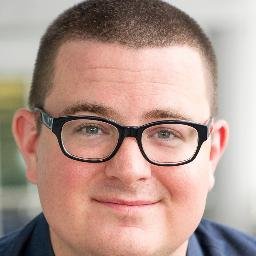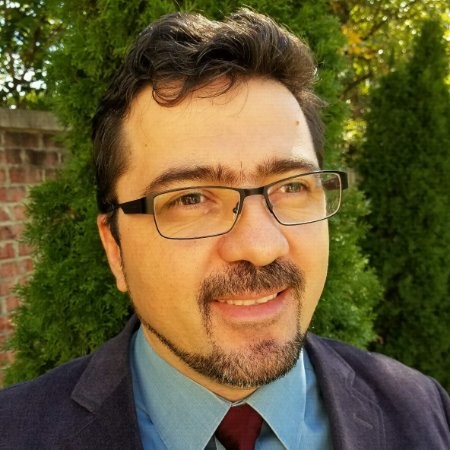Software Freedom Conservancy
See the following -
7 Notable Legal Developments in Open Source in 2016
 In 2012 the jury in the first Oracle v. Google trial found that Google's inclusion of Java core library APIs in Android infringed Oracle's copyright. The district court overturned the verdict, holding that the APIs as such were not copyrightable (either as individual method declarations or their "structure, sequence and organization" [SSO]). The Court of Appeals for the Federal Circuit, applying 9th Circuit law, reversed, holding that the "declaring code and the [SSO] of the 37 Java API packages are entitled to copyright protection." The U.S. Supreme Court declined to review the case, and in 2016 a closely watched second trial was held on Google's defense of fair use. In May 2016 the jury returned a unanimous verdict in favor of Google...
In 2012 the jury in the first Oracle v. Google trial found that Google's inclusion of Java core library APIs in Android infringed Oracle's copyright. The district court overturned the verdict, holding that the APIs as such were not copyrightable (either as individual method declarations or their "structure, sequence and organization" [SSO]). The Court of Appeals for the Federal Circuit, applying 9th Circuit law, reversed, holding that the "declaring code and the [SSO] of the 37 Java API packages are entitled to copyright protection." The U.S. Supreme Court declined to review the case, and in 2016 a closely watched second trial was held on Google's defense of fair use. In May 2016 the jury returned a unanimous verdict in favor of Google...
- Login to post comments
Free Software Foundation to offer seminar on GPL enforcement and legal ethics
The Free Software Foundation will be providing a half-day legal seminar titled "GPL Enforcement and Legal Ethics", taking place on Monday, March 24 at Suffolk University Law School in Boston. Read More »
- Login to post comments
Is Use of the Open Source GPL License Declining?
 A little while ago I saw an interesting tweet from Stephen O'Grady at RedMonk on the state of open source licensing, including this graph. This graph shows how license usage has changed from 2010 to 2017. In reading it, it is clear that usage of the GPL 2.0 license, one of the purest copyleft licenses around, has more than halved in usage. According to the chart it would appear that the popularity of open source licensing has subsequently shifted to the MIT and Apache licenses. There has also been a small increase in GPL 3.0 usage. So, what does all this mean?
A little while ago I saw an interesting tweet from Stephen O'Grady at RedMonk on the state of open source licensing, including this graph. This graph shows how license usage has changed from 2010 to 2017. In reading it, it is clear that usage of the GPL 2.0 license, one of the purest copyleft licenses around, has more than halved in usage. According to the chart it would appear that the popularity of open source licensing has subsequently shifted to the MIT and Apache licenses. There has also been a small increase in GPL 3.0 usage. So, what does all this mean?
- Login to post comments
Karen Sandler Addresses Open Source's "Identity Crisis"
 For Karen Sandler, software freedom isn't simply a technical matter. Nor is it a purely ideological one. It's a matter of life and death. Sandler, Executive Director of the non-profit Software Freedom Conservancy, says software freedom became personal when she realized her pacemaker/defibrillator was running code she couldn't analyze. For nearly a decade—first at the Software Feedom Law Center, then at the GNOME Foundation before Conservancy—she's been an advocate for the right to examine the software on which our lives depend...
For Karen Sandler, software freedom isn't simply a technical matter. Nor is it a purely ideological one. It's a matter of life and death. Sandler, Executive Director of the non-profit Software Freedom Conservancy, says software freedom became personal when she realized her pacemaker/defibrillator was running code she couldn't analyze. For nearly a decade—first at the Software Feedom Law Center, then at the GNOME Foundation before Conservancy—she's been an advocate for the right to examine the software on which our lives depend...
- Login to post comments
LibreHealth
 LibreHealth is an independent self-governing free & open source software community founded by leading members of the OpenMRS & OpenEMR projects. It builds on a decade of dedication and hard work by contributors to those earlier projects and was created to expand the communities’ impact to all types of Health IT, leveraging its values of active user engagement & radically open transparency. Participation in the LibreHealth community is open to all individuals who support our core values and contribute to our activities.
LibreHealth is an independent self-governing free & open source software community founded by leading members of the OpenMRS & OpenEMR projects. It builds on a decade of dedication and hard work by contributors to those earlier projects and was created to expand the communities’ impact to all types of Health IT, leveraging its values of active user engagement & radically open transparency. Participation in the LibreHealth community is open to all individuals who support our core values and contribute to our activities.
- Login to post comments
Open Source Diversity Efforts Gain Momentum in 2016
 If software is pervasive, shouldn't the people building it be from everywhere and represent different voices? The broadly accepted answer is yes, that we need a diverse set of developers and technologists to build the new digital world. Further, when you look at communities that thrive, they are those that evolve and grow and bring in new voices and perspectives. Because much of the software innovation happening today involves open source software, the open source community can be an entry point for new people in technology roles. This means that the open source community must evolve to stay relevant...
If software is pervasive, shouldn't the people building it be from everywhere and represent different voices? The broadly accepted answer is yes, that we need a diverse set of developers and technologists to build the new digital world. Further, when you look at communities that thrive, they are those that evolve and grow and bring in new voices and perspectives. Because much of the software innovation happening today involves open source software, the open source community can be an entry point for new people in technology roles. This means that the open source community must evolve to stay relevant...
- Login to post comments
Open Source Governance and the Rise of a New Open Health Movement
 It's hard to tell if (or when) new open source foundations will appear and claim a leading role in healthcare. It would be interesting to see one created to scale an existing viable model, such as the one from Oroville Hospital using VistA. Or we could see OSEHRA shifting its focus and expanding its charter beyond just the US government space. Nevertheless, the successful foundation would keep a low barrier to entry for innovators, allowing them to incorporate and scale open source healthcare technologies into commercial products. Time will tell, but what's for certain is that we live in interesting times, and I am looking forward to massive innovation in healthcare in the near future. The time is ripe.
It's hard to tell if (or when) new open source foundations will appear and claim a leading role in healthcare. It would be interesting to see one created to scale an existing viable model, such as the one from Oroville Hospital using VistA. Or we could see OSEHRA shifting its focus and expanding its charter beyond just the US government space. Nevertheless, the successful foundation would keep a low barrier to entry for innovators, allowing them to incorporate and scale open source healthcare technologies into commercial products. Time will tell, but what's for certain is that we live in interesting times, and I am looking forward to massive innovation in healthcare in the near future. The time is ripe.
- Login to post comments
Open Source Projects Aren't Tax Scams
IRS is eyeing open source projects and Tea Party groups as possible tax scams, raising a real question: Do open source foundations need nonprofit status? Read More »
- Login to post comments
OpenMRS & OpenEMR Community Members Join Forces - Announce LibreHealth
 Senior contributors and leaders from OpenMRS & OpenEMR, the two leading open source Health IT platforms, have announced the formation of LibreHealth, a new initiative to expand on many years of work by those communities’ volunteers through increased focused on needs of its users in critical areas. After many years of growth under the sponsorship of organizations OEMR & OpenMRS Inc., key members of the two communities have joined forces to launch a successor free & open source software community to fulfill their vision of improved health outcomes around the world.
Senior contributors and leaders from OpenMRS & OpenEMR, the two leading open source Health IT platforms, have announced the formation of LibreHealth, a new initiative to expand on many years of work by those communities’ volunteers through increased focused on needs of its users in critical areas. After many years of growth under the sponsorship of organizations OEMR & OpenMRS Inc., key members of the two communities have joined forces to launch a successor free & open source software community to fulfill their vision of improved health outcomes around the world.
Opensource.com Publishes 18 Interviews with Speakers of the Upcoming OSCON Conference
For those of you who have not noticed yet, the folks at Opensource.com just completed the publication of an entire series of interviews with speakers at the upcoming O/Reilly OSCON conference. This conference is one of the most important and interesting open source conferences of the year and the wide variety of interviews conducted which show the depth and breadth of the conference topics. `
- The Future Is Open
- Login to post comments
Software Freedom Conservancy And Free Software Foundation Announce Copyleft.Org
This new site will not only provide a venue for those who constantly update and improve the Comprehensive Tutorial, but is also now home to a collaborative community to share and improve information about copyleft licenses, especially the GNU General Public License (GPL), and best compliance practices...
- Login to post comments
Top 10 FOSS Legal Stories in 2016
 The year 2016 resulted in several important developments that affect the FOSS ecosystem. While they are not strictly "legal developments" they are important for the community. For one, Eben Moglen, the general counsel of the Free Software Foundation, stepped down. Eben has been a leader on FOSS legal issues since the late 1990s and has been critical to the success of the FOSS movement. The FOSS community owes him a huge debt of gratitude, and I expect that he will continue to be active in the FOSS community. The success of FOSS adoption was dramatically illustrated when Microsoft joined the Linux Foundation and summarized in the article, Open Source Won. So, Now What? in Wired magazine...
The year 2016 resulted in several important developments that affect the FOSS ecosystem. While they are not strictly "legal developments" they are important for the community. For one, Eben Moglen, the general counsel of the Free Software Foundation, stepped down. Eben has been a leader on FOSS legal issues since the late 1990s and has been critical to the success of the FOSS movement. The FOSS community owes him a huge debt of gratitude, and I expect that he will continue to be active in the FOSS community. The success of FOSS adoption was dramatically illustrated when Microsoft joined the Linux Foundation and summarized in the article, Open Source Won. So, Now What? in Wired magazine...
- Login to post comments
Using LibreHealth EHR for Education in Academic Settings
 Traditionally, access to EHRs has been viewed as important only for software training, particularly order entry. What seems to be overlooked is the potential for education, analytics and research. Additionally, one could argue that there should be an open-source “EHR Sandbox” so multiple external EHR integrations could be studied and reported. Furthermore, many EHR users view the software as a means to enter or extract data on one patient at a time and fail to see the benefit in analyzing their entire clinic population (population health). The following diagram displays how an EHR could be used for education, training, analytics and research.
Traditionally, access to EHRs has been viewed as important only for software training, particularly order entry. What seems to be overlooked is the potential for education, analytics and research. Additionally, one could argue that there should be an open-source “EHR Sandbox” so multiple external EHR integrations could be studied and reported. Furthermore, many EHR users view the software as a means to enter or extract data on one patient at a time and fail to see the benefit in analyzing their entire clinic population (population health). The following diagram displays how an EHR could be used for education, training, analytics and research.
- Login to post comments